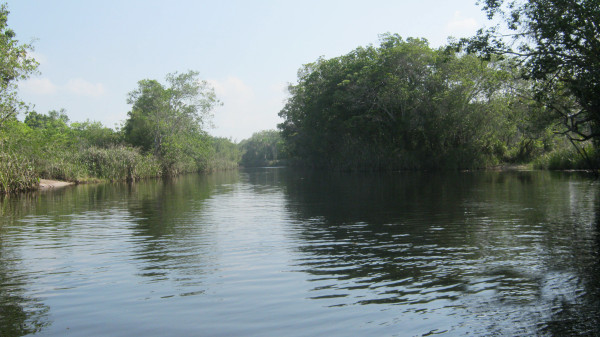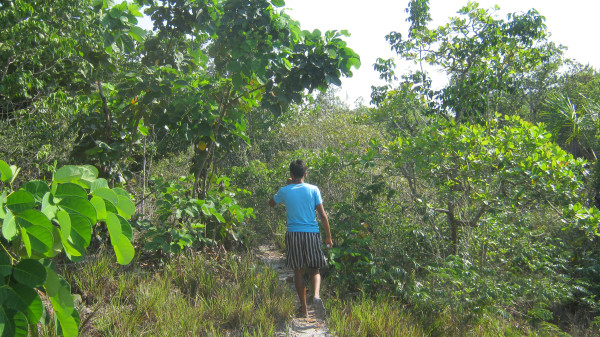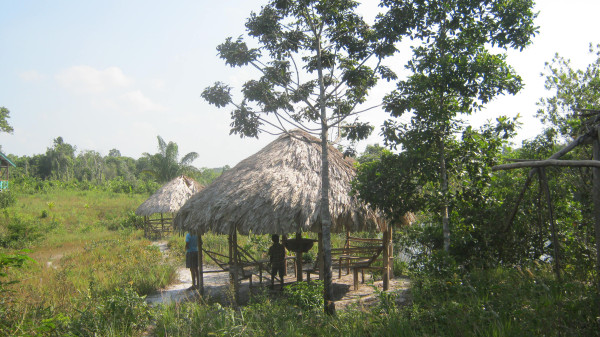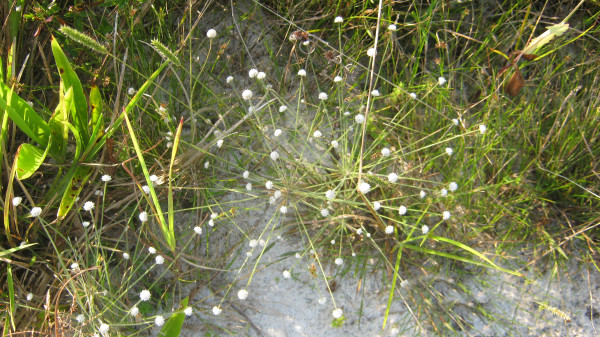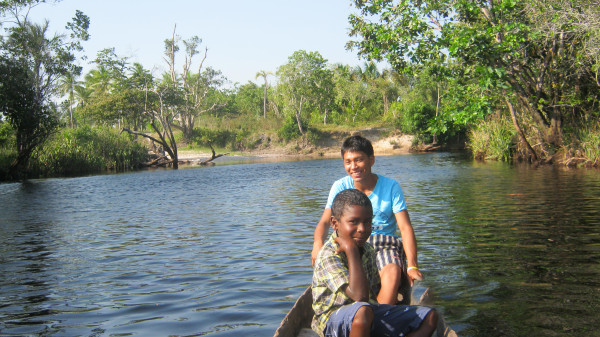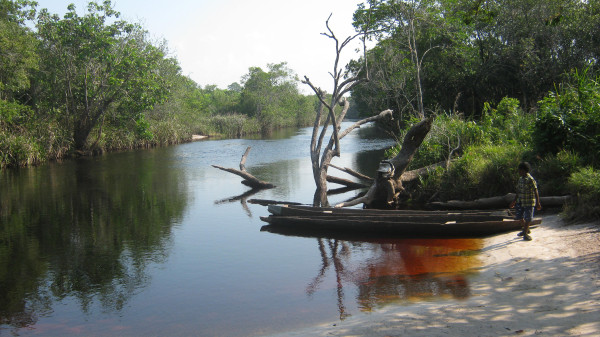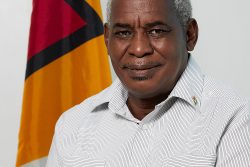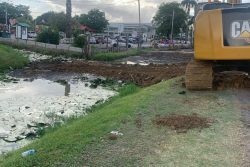One year after its construction a $5 million dollar eco-lodge at St Cuthbert’s Mission houses termites and bugs and weeds are taking over the structure.
The tourist site, which was established over the Mahaica River, was a collaborative effort of the United Nations Development Programme (UNDP) and the former Ministry of Amerindian Affairs, with funding from Norway, through the Low Carbon Development Strategy (LCDS).
However, according to Toshao Lenox Ron Shuman, the initiative is a failed project. He said the newly elected council has been discussing the relocating of the eco-lodge, but this discussion was only done at the level of the council.
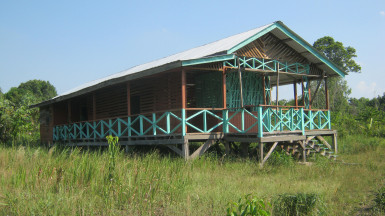
Shuman told Stabroek News that he is currently working on re-purposing all of the assets of the facility as it was poorly planned and administrated.
In addition, the Captain believes that the location chosen for the eco-lodge was not the ideal place as it is difficult to access it from the village, considering the distance, the condition of the road and the crossing of the Mahaica River. A huge swamp spans the trail to the site of the eco-lodge and vehicles are unable to go the full distance.
Sections of the trail are almost invisible and were it not for two kind young men: Wayne, 16, and Omari, 8, who guided Stabroek News to the eco-lodge, finding it would have been impossible.
Overgrown weeds have covered the trail leading to the site and there is no bridge or boats provided by the village to cross the Mahaica River to access the building.
Walking along the trail, one comes into contact with weeds and branches that hang overhead, some blossoming with fluffy pollen that loosens upon being touched.
But the budding vines that hang from tall trees and wild ferns, along with other unique flowering plants that adorn the vast forested area present a magnificence that is breathtaking.
Being greeted with the cool ripples of the constant and quiet flow of the fresh black water from the Mahaica River was also irresistibly tempting.
The eco-lodge is sixty feet in length and twenty-five feet in width and it has a dining area, two bed rooms and a kitchen; it has never accommodated anyone.
Shuman is planning to use the zinc sheets from the building on homes for elderly residents in the community who are in need.
Since most of the wooden sections of the building are infested with termites, Shuman said that the materials may only be good for firewood.
In addition, five benabs which were constructed along the Mahaica River have also been abandoned and two horses which were purchased to operate as transportation have perished. Before buying the horses, Shuman said, no consideration was given as to whether the animals would have survived in the environment.
A 40-horsepower outboard engine along with several canoes were also purchased as part of the project.
Waste of money
A resident, Clarence Shuman, has been living close the Mahaica River, an area which was his home for 53 years.
He provided a canoe made from Korara wood to cross the river. The tide was strong and Wayne, an amateur in paddling could not control the boat against the current. Fortunately, this reporter grew up in a farming community and was exposed to paddling.
Former Toshao of St Cuthbert’s Mission Luke Simon, a retired school teacher, believes that effective management by the present Toshao and his councillors is what is required in order to realize the intended purpose of the eco-lodge.
Simon opined that the location caters for an ideal eco-tourism experience, as opposed to a regular experience at one of the popular resorts around Guyana.
The project, according to Simon was well planned and the established site was part of the plan to offer a different experience to tourists.
“I heard rumours that the new council wants to remove the eco-lodge from the location where it is, but that will be a waste of money and labour,” Simon stated.
In addition, a line of about three to four miles was cut into the forest and a tower was created to facilitate bird watching, but that too was abandoned, according to Simon.
“This is what the eco-lodge is about… It is about showcasing the wonders of nature by taking tourist out from the regular places,” Simon added, while he recalled two students from the University of Guyana who were doing studies in tourism, had invited several persons to tour the eco-lodge, while they evaluated the experience of the tourists.
“That tour was well done… It was planned and I also [oversaw] the experience and it was successful,” Luke said. “The building was erected over the Mahaica River to allow tourist to get good photographs and the river being close by was intended to allow for canoeing,” he added.
Simon further opined that the newly elected councillors are capable of being proactive thinkers as well as the Toshao.
He related that effective administration is what is needed to activate the eco-lodge. “It was a good initiative when compared to others and up to the time I was Toshao, I maintained the area and kept it clean,” Luke said.
The initiative, Luke explained could have seen employment for about six to eight persons and could have significantly improved the economic strength of the community as agriculture would have been boosted and more villagers would have been exposed to the hospitality industry.
“We were right on track and the eco-tourism must be activated… It could generate much needed funds for the community… It can change the state of St Cuthbert’s Mission,” Simon stressed, while he noted that during his tenure as leader of the village, he received several calls from different persons expressing their interest to visit the eco-lodge. He said that it would have been priority on his agenda to activate the lodge if he were re-elected as captain.
The retired school teacher said he was also planning to construct a bridge across the Mahaica River to facilitate easy crossing.
